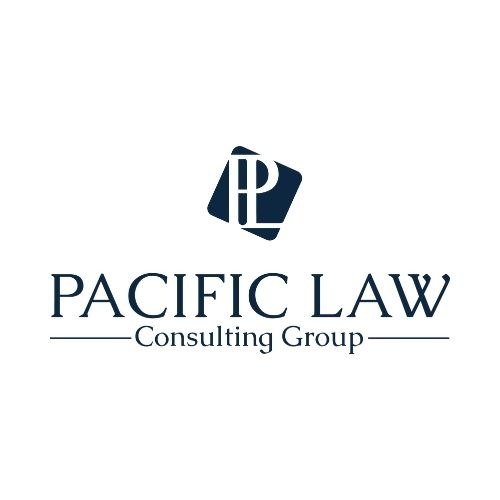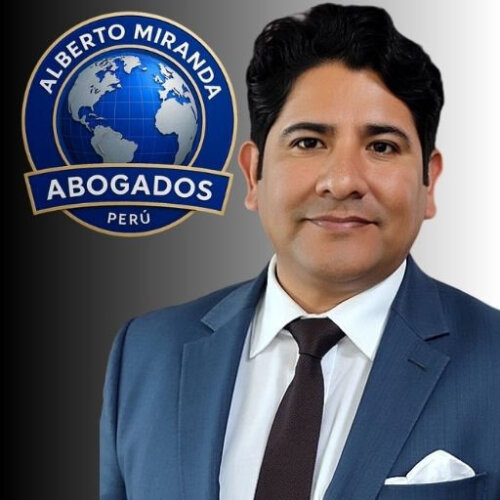Best Sanctions & Export Controls Lawyers in Peru
Share your needs with us, get contacted by law firms.
Free. Takes 2 min.
Or refine your search by selecting a city:
List of the best lawyers in Peru
About Sanctions & Export Controls Law in Peru
Sanctions and export controls in Peru refer to the set of legal measures and regulatory frameworks that govern the import, export, transfer, and re-export of specific goods, services, and technologies. These laws are designed to promote national security, comply with international obligations, prevent the proliferation of weapons of mass destruction, and uphold foreign policy objectives. The Peruvian government monitors and controls certain transactions, particularly those involving sensitive items, to ensure that businesses and individuals do not engage in prohibited activities or transactions with sanctioned individuals, entities, or countries.
Why You May Need a Lawyer
There are several common situations in which individuals and companies may require the assistance of a lawyer specializing in sanctions and export controls in Peru. These include:
- Planning to export or import goods or technologies that may be subject to restrictions or special authorization
- Receiving an inquiry, investigation, or notice from customs or law enforcement authorities regarding export activities
- Uncertain if a specific business transaction may violate local or international sanctions
- Assessing business risks related to foreign partners, clients, or countries with current sanctions or export control measures
- Preparing compliance programs to avoid penalties for inadvertent violations
- Seeking commercial licenses, authorizations, or clearances for sensitive goods
- Responding to confiscation of goods, fines, or legal action due to suspected export control violations
An experienced lawyer can clarify complex regulations, assist with necessary permits, develop compliance strategies, and provide representation in administrative or judicial proceedings.
Local Laws Overview
Peru has established various laws and regulations to monitor and control the export and import of goods, technology, and services, especially those that may impact national security or international commitments:
- Export of Defense and Dual-Use Goods: Movements of military equipment and dual-use items are controlled through specific licensing regimes administered by government authorities.
- Customs Regulations: The Superintendencia Nacional de Administración Tributaria (SUNAT) oversees customs procedures and enforces sanctions related to prohibited or restricted goods.
- Multilateral Sanctions Adherence: Peru works in coordination with the United Nations, the Organization of American States, and other international bodies, aligning its sanctions lists and policies accordingly.
- Anti-Money Laundering and Combating Terrorist Financing: Laws regulate financial transactions and prohibit dealings with individuals or entities identified in international or national sanctions lists.
- Penalties and Enforcement: Violations can result in administrative sanctions, such as fines or confiscation of goods, and in more severe cases may expose individuals or companies to criminal prosecution.
Regular updates to laws and lists of restricted items or sanctioned entities require constant vigilance by businesses and individuals involved in cross-border transactions.
Frequently Asked Questions
What are sanctions in the context of Peruvian law?
Sanctions are legal measures that restrict or prohibit certain activities, financial transactions, or dealings with specific countries, organizations, or individuals, usually to comply with international obligations or safeguard national interests.
Do I need a special license to export certain products from Peru?
Yes, certain goods such as military items, dual-use products, chemicals, or endangered species require special export licenses or permits issued by designated authorities before exportation.
How can I find out if a product is subject to export controls?
You should consult the Peruvian tariff schedule, refer to lists published by regulatory agencies, or contact a legal expert to determine whether your product falls under controlled categories.
What authorities regulate sanctions and export controls in Peru?
Primary regulation is provided by SUNAT for customs controls, the Ministry of Foreign Affairs for sanctions policy, and sector-specific agencies for controlled goods such as the Ministry of Defense or Ministry of Environment.
Are there penalties for violating export control laws in Peru?
Yes, violations can lead to administrative fines, seizure of goods, suspension of activities, and, in severe cases, criminal prosecution and imprisonment.
How do Peruvian laws align with international sanctions?
Peru aligns with sanctions mandated by the United Nations and regional organizations, periodically updating its domestic policies to reflect international commitments.
Can a Peruvian company trade with countries under international sanctions?
Generally, trading with countries or entities under international sanctions is prohibited unless an exemption or special license is obtained from the competent authorities.
Are services and technology transfers also subject to controls?
Yes, not only physical goods but also services, software, and technology transfers (including intangible transfers like emails or downloads) can fall under export control regulations.
What should I do if my goods are seized by customs?
You should immediately seek legal advice to understand the reasons for seizure, gather documentation, and initiate an appeal or regularization process as required by law.
How can I ensure compliance with sanctions and export controls?
Establish internal compliance programs, regularly review official updates, seek periodic legal guidance, and train staff on the identification and management of restricted transactions or goods.
Additional Resources
If you need more information or assistance regarding sanctions and export controls in Peru, consider contacting the following authorities and organizations:
- Superintendencia Nacional de Administración Tributaria (SUNAT)
- Ministerio de Defensa (Ministry of Defense)
- Ministerio de Relaciones Exteriores (Ministry of Foreign Affairs)
- Ministerio del Ambiente (Ministry of Environment) for environmental controls
- Cámara de Comercio de Lima (Lima Chamber of Commerce) for international trade guidance
- Private law firms with expertise in international trade, customs, and sanctions law
Next Steps
If you are facing a legal issue or have concerns about sanctions or export controls in Peru, here is how you can proceed:
- Gather all relevant information and documents about your business, goods, or services involved in international transactions
- Consult with a qualified lawyer specializing in sanctions and export control law for a detailed legal assessment
- Contact relevant authorities, such as SUNAT or the corresponding ministry, for official information on permits and requirements
- Develop internal compliance protocols and train employees to avoid unintentional violations
- Stay updated on changes to legislation, lists of controlled items, and new developments in international sanctions enforcement
Professional legal guidance will help protect your interests, ensure compliance, and minimize the risk of penalties or disruptions to your business operations.
Lawzana helps you find the best lawyers and law firms in Peru through a curated and pre-screened list of qualified legal professionals. Our platform offers rankings and detailed profiles of attorneys and law firms, allowing you to compare based on practice areas, including Sanctions & Export Controls, experience, and client feedback.
Each profile includes a description of the firm's areas of practice, client reviews, team members and partners, year of establishment, spoken languages, office locations, contact information, social media presence, and any published articles or resources. Most firms on our platform speak English and are experienced in both local and international legal matters.
Get a quote from top-rated law firms in Peru — quickly, securely, and without unnecessary hassle.
Disclaimer:
The information provided on this page is for general informational purposes only and does not constitute legal advice. While we strive to ensure the accuracy and relevance of the content, legal information may change over time, and interpretations of the law can vary. You should always consult with a qualified legal professional for advice specific to your situation.
We disclaim all liability for actions taken or not taken based on the content of this page. If you believe any information is incorrect or outdated, please contact us, and we will review and update it where appropriate.
Browse sanctions & export controls law firms by city in Peru
Refine your search by selecting a city.











